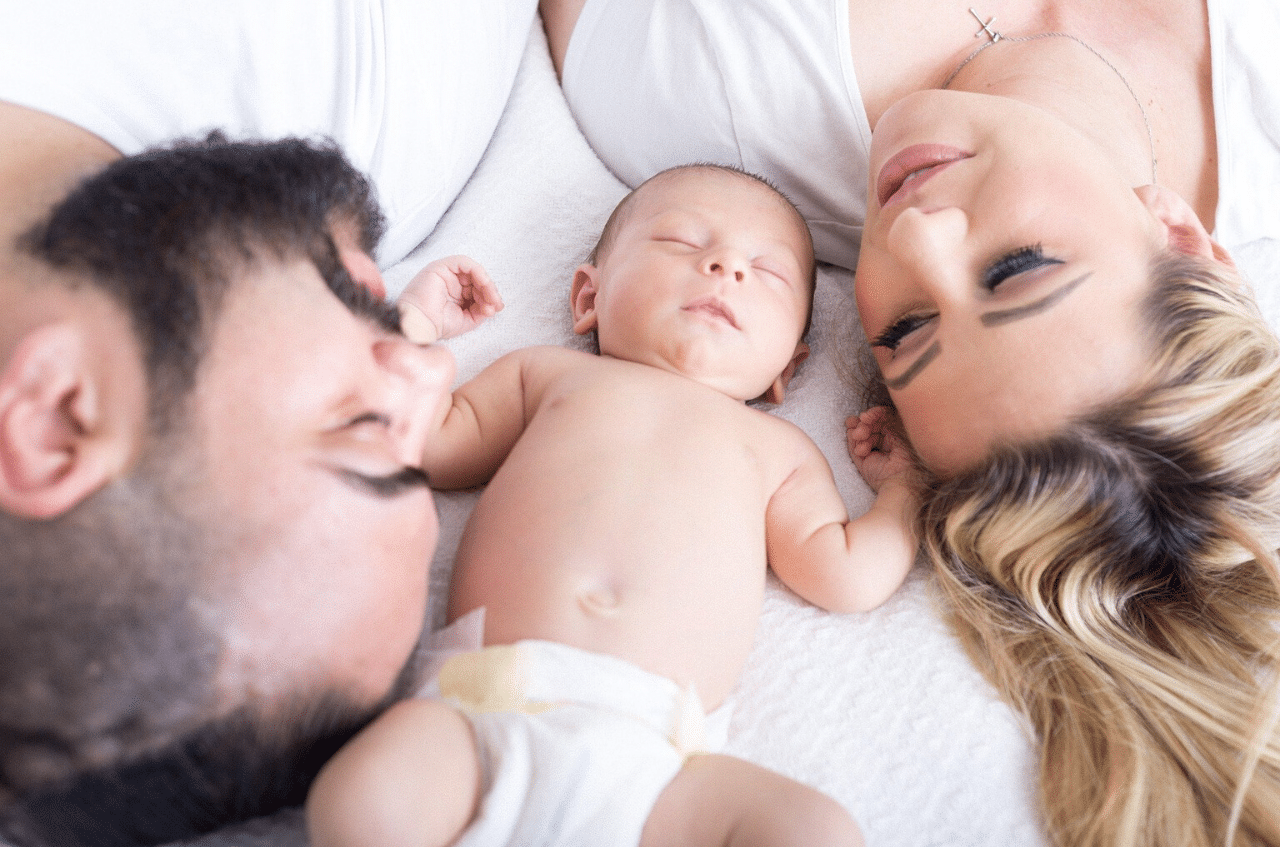It is very common for relationships to change in the lead up to and following the birth of a new baby. Whilst this can be a wonderful experience, for some the changes can be extremely negative and often very unexpected.
1. Depression, anxiety and trauma surrounding pregnancy and childbirth
Pregnancy is often a planned and straightforward experience. However, for many couples there can be complications and challenges affecting their journey to having a baby. These difficulties can cause stress and anxiety for both parents to be; triggering fears about the pregnancy and the safety of their unborn child. There may be additional sadness and trauma along this journey including failed IVF, miscarriage and baby loss.
As well as stresses surrounding pregnancy, it is also very common for people to experience difficulties and frightening experiences during childbirth. The Birth Trauma Association UK estimate that around 30,000 women a year experience birth trauma in the UK. These experiences can include pain and fear connected to the mother not feeling heard, respected or in control and threat to the safety of baby. In addition, there could be complications immediately or soon after birth. Premature and fast deliveries can also be experienced as very frightening and at times traumatic.
All of these experiences can be frightening and upsetting leading to difficulties recovering and coming to terms with the birth that took place. It can be exacerbated by the ideals and expectations that may have come before the birth about how the birth could or should have been versus the reality of what happened. This is often heavily influenced by society and social media and suggestions and expectations that pregnancy and childbirth will be magical and idyllic times of our life.
As a result new parents (and yes, this includes fathers) can experience depression, anxiety and symptoms associated with trauma (nightmares, flashbacks, experiencing high levels of threat). These experiences will often affect the relationship between partners, as well as impacting on the relationship parents develop with their babies and their ability to enjoy spending time with their children and parenthood.
2. Changes in roles and dynamics of relationships
Relationships with partners, family and friends will inevitably change after having a baby. Many of these changes can be positive and strengthen relationships through shared experiences and a greater understanding and compassion for each other.
The arrival of a new baby, however, also brings a number of challenges, which may include tiredness, less free time, reduced income and changes in roles. There is also a shift in the dynamics of the relationship in a couple such that each person is no longer at the forefront of their partner’s mind. Partners can feel sidelined as a new mother concentrates on their child and mothers can feel their role change from being the centre of attention and support in pregnancy to simply feeding and caring for the baby who is the focus of everyone’s attention after the birth. Parents may also experience tensions in decisions about parenting and how things “should” be done and this can feel unbalanced when parents spend differing amounts of time with their baby due to work pressures. A couple’s physical relationship can also change significantly after the birth of a child. Exhaustion, stress, the physical demands of child birth and breast feeding and reduced time for each other can make sexual relationships difficult and challenging. This is often particularly difficult when the physical side of a couple’s relationship was a strength and something they both valued before having a baby.
Relationships in the wider family can often change following the birth of a child as parents adjust to becoming grandparents and there can be differing expectations about how and what support or advice is wanted from the new parents.
It can sometimes be the arrival of a sibling that can cause the most challenges for families. Parents often plan a second child when life has become more predictable and manageable and the arrival of a new baby who disturbs this settled life can be unsettling for all the family. Whilst a new sibling brings fun, laughter and potential for new play experiences it can be difficult for the whole family to adjust to changes in their lives and a child having to share the love and attention from their parents which they may have previously enjoyed in solely for themselves.
3. What needs to change and how we can help
With the demands and pressures of parenthood, it can seem impossible to make time to sit and talk about the difficulties being experienced. People can feel isolated and ashamed of asking for help, but with this comes a worsening of the difficulties and how people are feeling. Open and honest communication is a good starting point and trying to prioritise looking after every member of the family and making time together for each other. Taking time to think about when or how the difficulties initially started can often help to identify small steps that individuals can take in their relationship to make improvements; be that focusing on self-care, getting more sleep, having a break or asking for more external support. We recognise that sometimes this is not enough to help the situation and it can feel like the problems are becoming overwhelming or impossible to change. This is where therapy can help; be it providing an individual space for the mother or father to talk about their experiences and the adjustment in their new roles or couples/family work to talk about the changes in the dynamics of relationships and how to solve problems of parenting and adjusting to new roles more jointly.
Get in touch
We are happy to discuss any concerns with you by telephone or send us a message via the contact form; this service is free. If we can provide assistance then an initial appointment will be offered.
Article author: Dr Laura Kollinsky and Dr Becca Salmon







